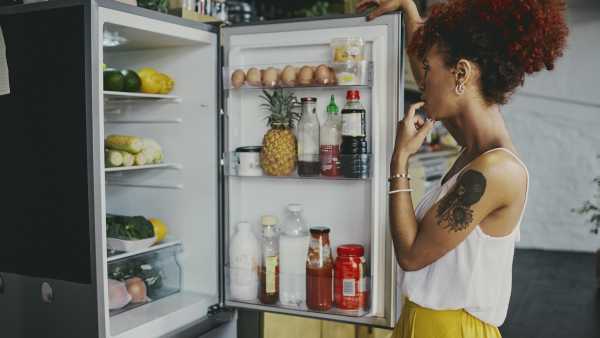
A microwave oven is one of the most beloved kitchen assistants for those who constantly do not have time for daily cooking. A microwave oven can make life easier in many ways and save you from unnecessary hassle, but do not forget that when heated, some products may lose some of their beneficial properties or change their structure. This applies to any heat treatment, but microwaves have their own specifics. They cause water molecules in food to vibrate, which causes heating. This process is fast, but not always uniform, and this is what can create certain risks for some products.
Eggs
Eggs are a product that we constantly use in cooking. Many people cannot imagine breakfast without an omelet or scrambled eggs. And despite the many recipes and cooking methods, it is worth remembering that in this case you should not resort to the help of a microwave. Due to the sharp increase in temperature inside the egg, steam is formed, the pressure increases, so the probability that the egg will explode is very high.
Hot pepper
Hot peppers, like eggs, can explode when heated in a microwave, or in the worst case, catch fire. The fruit contains capsaicin (an organic substance responsible for the pungency and burning sensation). When peppers are heated in a microwave, the capsaicin transforms into an aerosol, resulting in homemade pepper spray that can burn your face and hands as soon as you open the microwave.
Frozen meat
If you think that the microwave is the best assistant for cooking dinner (if you didn’t have time to defrost the meat), then this is not so. The problem is uneven defrosting. While one part of the meat is still frozen, another can heat up to a temperature ideal for the rapid reproduction of bacteria that were already in the product. If you do not cook such meat immediately, the risk of food poisoning increases. In addition, the meat cannot fully defrost: the edges often start to cook and turn gray, while the middle remains icy. This deteriorates both the taste and texture of the dish. Therefore, the most correct way is still to defrost the meat overnight in the refrigerator.
Fermented milk products
No matter how much you want to quickly heat up milk or yogurt, it is better to take the product out of the refrigerator in advance and wait a while. When heated, live lacto- and bifidobacteria quickly disappear and there will be almost no beneficial properties left in the products. Moreover, the probability that the milk will curdle and turn sour is very high.
Breast milk, formula milk
Breast milk and formula, just like fermented milk products, are not recommended to be heated in a microwave. Heat radiation is distributed unevenly, so the milk will heat up in parts, and the hottest ones can easily burn the baby. In addition, studies have shown that after heating in a microwave, immunostimulating proteins in breast milk are destroyed and the beneficial properties are reduced to a minimum. One of the most correct ways is to heat breast milk or formula in a saucepan with hot water or in a jar under hot running water.
Frozen berries
Freezing berries is a common and correct practice, especially since their beneficial properties are preserved, and you can cook them whenever you want. The main thing is to try not to use a microwave to defrost them. Rapid and intense heating can destroy some of the heat-sensitive vitamins, in particular vitamin C, for which we value berries so much. In addition, due to the large amount of moisture inside and the thin skin, the berries can burst, turning into hot puree. It is best to defrost them slowly in the refrigerator or at room temperature.
Honey
Over time, honey becomes hard and viscous: it sugars or crystallizes. This natural process is only evidence of the high quality of the product. You should not try to restore the original consistency by heating, especially to high temperatures (for example, boiling). This destroys its valuable enzymes, vitamins, antioxidants and other biologically active compounds that make raw honey useful. The transformation of saccharides and other substances during heating can even lead to the formation of potentially harmful compounds.
Green
When heated in a microwave, tender greens such as spinach or celery quickly wilt, lose their crisp texture, taste, and some of their beneficial properties. It is worth mentioning the nitrates contained in many leafy vegetables. Although the health risk from a single heating is minimal, under certain conditions, high temperatures can contribute to the conversion of nitrates into less desirable compounds – nitrites. The main reason to abandon this method is that the heated greens simply become tasteless.





